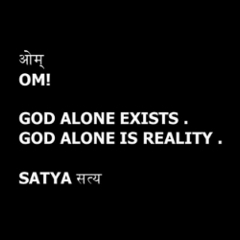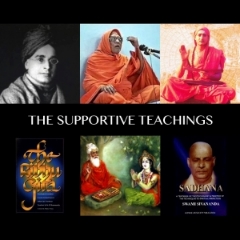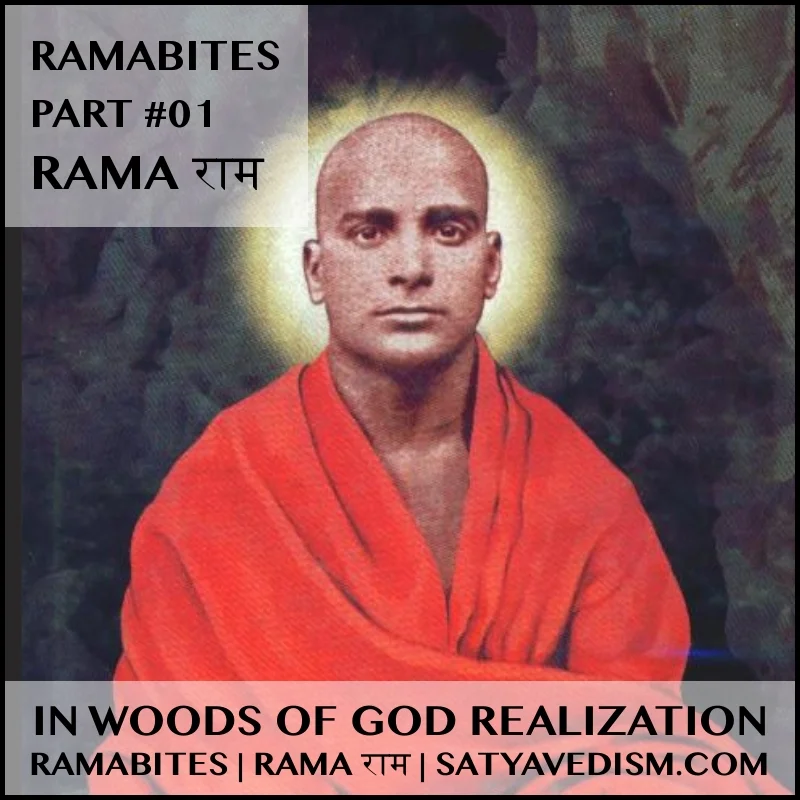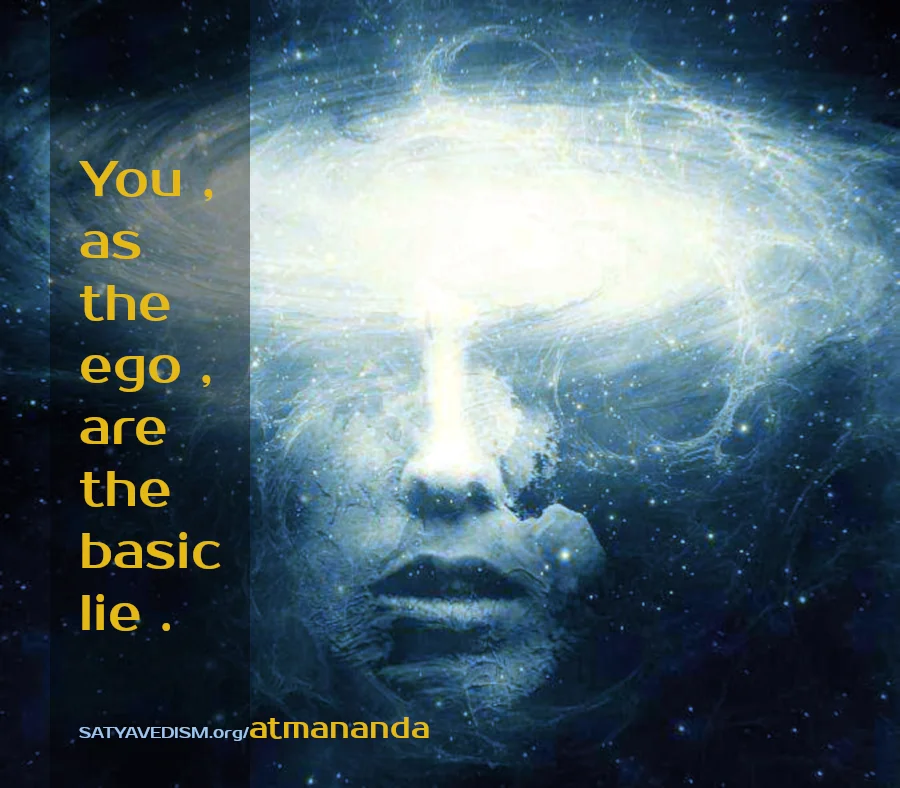TNOD | BHAKTI YOGA | INTRO | PRABHUPADA
| | homeTHE NECTAR OF DEVOTION : THE COMPLETE SCIENCE OF BHAKTI-YOGA | AC BHAKTIVEDANTA SWAMI PRABHUPADA
BHAKTI-RASAMRTA-SINDHU | THE OCEAN OF THE PURE NECTAR OF DEVOTIONAL SERVICE | INTRODUCTION | SRILA RUPA GOSWAMI
sri-sri-bhakti-rasamrta-sindhuh
bhagavad-bhakti-bheda-nirupakah
purva-vibhagah
prathama-lahari samanya-bhaktih
sri-sri-radha-govinda-devau vijayete
BHAKTI-RASAMRTA-SINDHU | INTRODUCTION
|| VERSE 1.1.1 | INTRODUCTION ||
akhila-rasamrta-murtih prasrmara-ruci-ruddha-taraka-palih |
kalita-syama-lalito radha-preyan vidhur jayati || 1.1.1 ||
|| BHASYA || Invoking auspiciousness : LORD SRI KRISHNA is the Supreme Personality of GODhead , the cause of all causes , the reservoir of all rasas , or relationships , which are called neutrality ( passive adoration ) , servitorship , friendship , parenthood , conjugal love , comedy , compassion , fear , chivalry , ghastliness , wonder and devastation .
KRISHNA is the supreme attractive form , and by universal and transcendental attractive features has captivated all the gopis , headed by Taraka , Palika , Syama , Lalita , and ultimately Srimati Radharani .
BHAKTI-RASAMRTA-SINDHU | INTRODUCTION
|| VERSE 1.1.2 | INTRODUCTION ||
hrdi yasya preranaya pravartito 'ham varaka-rupo 'pi |
tasya hareh pada-kamalam vande caitanya-devasya || 1.1.2 ||
|| BHASYA || Let The Lordship's grace be on us so that there may not be any hindrance in the execution of this duty of writing The Nectar of Devotion , impelled by The Divine Grace Sri Srimad Bhaktisiddhanta Sarasvati Gosvami Prabhupada .
Let me offer my respectful obeisances unto the lotus feet of Srila Rupa Gosvami Prabhupada and of Srila Bhaktisiddhanta Sarasvati Gosvami Prabhupada , by whose inspiration I have been engaged in the matter of compiling this summary study of Bhakti-rasamrta-sindhu .
This is the sublime science of devotional service as propounded by Sri Caitanya Mahaprabhu , who appeared five hundred years ago in West Bengal , India , to propagate the movement of KRISHNA consciousness .
BHAKTI-RASAMRTA-SINDHU | INTRODUCTION
|| VERSE 1.1.3 | INTRODUCTION ||
visrama-mandiratya tasya sanatana-tanor mad-isasya |
bhakti-rasamrta-sindhur bhavatu sadayam pramodaya || 1.1.3 ||
|| BHASYA || Srila Rupa Gosvami begins the great book by offering respectful obeisances unto Sri Sanatana Gosvami , who is the elder sibling and spiritual master ; and prays that Bhakti-rasamrta-sindhu may be very pleasing to the sibling .
Srila Rupa Gosvami further prays that by residing in that ocean of nectar , Sri Sanatana Gosvami may always feel transcendental pleasure in the service of Radha and KRISHNA .
BHAKTI-RASAMRTA-SINDHU | INTRODUCTION
|| VERSE 1.1.4 | INTRODUCTION ||
bhakti-rasamrta-sindhau caratah paribhuta-kala-jala-bhiyah |
bhakta-makaran asilita-mukti-nadikan namasyami || 1.1.4 ||
|| BHASYA || Let us offer our respectful obeisances to all the great devotees and acaryas ( holy teachers ) , who are compared to sharks in the great ocean of nectar and who do not care for the various rivers of liberation .
Impersonalists are very fond of merging into the Supreme , like rivers that come down and merge into the ocean . The ocean can be compared to liberation , and the rivers to all the different paths of liberation .
The impersonalists are dwelling in the river water , which eventually comes to mix with the ocean . They have no information , however , that within the ocean , as within the river , there are innumerable aquatic living entities . The sharks who dwell in the ocean do not care for the rivers which are gliding down into it .
The devotees eternally live in the ocean of devotional service , and they do not care for the rivers .
In other words , those who are pure devotees always remain in the ocean of transcendental loving service to the Lord and have no business with the other processes , which are compared to the rivers that only gradually come to the ocean .
BHAKTI-RASAMRTA-SINDHU | INTRODUCTION
|| VERSE 1.1.5 | INTRODUCTION ||
mimamsaka-vadabagneh kathinam api kunthayann asau jihvam |
sphuratu sanatana suciram tava bhakti-rasamrtambhodhih || 1.1.5 ||
|| BHASYA || Srila Rupa Gosvami prays to the spiritual master , Srila Sanatana Gosvami , for the protection of Bhakti-rasamrta-sindhu — " The Ocean of the Pure Nectar of Devotional Service " — from the argumentative logicians who unnecessarily meddle in the science of service to the Lord .
Srila Rupa Gosvami compares their arguments and logic to volcanic eruptions in the midst of the ocean . In the midst of the ocean , volcanic eruptions can do very little harm , and similarly , those who are against devotional service to the Lord and who put forward many philosophical theses about the ultimate transcendental realization cannot disturb this great ocean of devotional service .
BHAKTI-RASAMRTA-SINDHU | INTRODUCTION
|| VERSE 1.1.6 | INTRODUCTION ||
bhakti-rasasya prastutir akhila-jagan-mangala-prasangasya |
ajnenapi mayasya kriyate suhrdam pramodaya || 1.1.6 ||
|| BHASYA || The author of Bhakti-rasamrta-sindhu , Srila Rupa Gosvami , very humbly submits the attempt to spread KRISHNA consciousness all over the world , although humbly feeling unfit for this work .
That should be the attitude of all preachers of the KRISHNA consciousness movement , following in the footsteps of Srila Rupa Gosvami .
We should never think of ourselves as great preachers , but should always consider that we are simply instrumental to the previous acaryas , and simply by following in their footsteps we may be able to do something for the benefit of suffering humanity .
BHAKTI-RASAMRTA-SINDHU | INTRODUCTION
|| VERSE 1.1.7-8 | INTRODUCTION ||
etasya bhagavad-bhakti-rasamrta-payonidheh |
catvarah khalu vaksyante bhagah purvadayah kramat || 1.1.7 ||
tatra purve vibhage 'smin bhakti-bheda-nirupake |
anukramena vaktavyam laharinam catustayam || 1.1.8 ||
|| BHASYA || Bhakti-rasamrta-sindhu is divided into four parts , just as the ocean is sometimes divided into four parts , and there are different sections within each of these four divisions .
Originally , in Bhakti-rasamrta-sindhu , the ocean is divided like the watery ocean into east , south , west and north , while the subsections within these different divisions are called waves .
As in the ocean there are always different waves , either on the eastern side , the southern side , the western side or the northern side , Bhakti-rasamrta-sindhu similarly has different waves .
BHAKTI-RASAMRTA-SINDHU | INTRODUCTION
|| VERSE 1.1.9 | INTRODUCTION ||
adya samanya-bhakty-adhya dvitiya sadhananvita |
bhavasrita trtiya ca turya prema-nirupika || 1.1.9 ||
|| BHASYA || In the first part there are four waves , the first being a general description of devotional service .
The second concerns the regulative principles for executing devotional service , and the third wave , devotional service in ecstasy .
In the fourth is the ultimate goal , LOVE OF GOD .
These will be explicitly described along with their different symptoms .
BHAKTI-RASAMRTA-SINDHU | INTRODUCTION
|| VERSE 1.1.10 | INTRODUCTION ||
tatradau susthu vaisistyam asyah kathayitum sphutam |
laksanam kriyate bhakter uttamayah satam matam || 1.1.10 ||
|| BHASYA || The authorized descriptions of Bhakti , or devotional service , following in the footsteps of previous acaryas , can be summarized in the following statement by Srila Rupa Gosvami :
BHAKTI-RASAMRTA-SINDHU | INTRODUCTION
|| VERSE 1.1.11 | INTRODUCTION ||
anyabhilasita-sunyam jnana-karmady-anavrtam |
anukulyena krsnanusilanam bhaktir uttama || 1.1.11 ||
|| BHASYA || " First-class devotional service is known by one's tendency to be fully engaged in KRISHNA consciousness , serving the Lord favorably . "
The purport is that one may also be in KRISHNA consciousness unfavorably , but that cannot be counted as pure devotional service .
Pure devotional service should be free from the desire for any material benefit or for sense gratification , as these desires are cultivated through fruitive activities and philosophical speculation .
Generally , people are engaged in different activities to get some material profit , while most philosophers are engaged in proposing transcendental realization through volumes of word jugglery and speculation .
Pure devotional service must always be free from such fruitive activities and philosophical speculations .
One has to learn KRISHNA consciousness , or pure devotional service , from the authorities by spontaneous loving service . This devotional service is a sort of cultivation .
It is not simply inaction for people who like to be inactive or devote their time to silent meditation . There are many different methods for people who want this , but cultivation of KRISHNA consciousness is different .
The particular word used by Srila Rupa Gosvami in this connection is anusilana , or cultivation by following the predecessor teachers ( acaryas ) . As soon as we say " cultivation " , we must refer to activity .
Without activity , consciousness alone cannot help us . All activities may be divided into two classes :
One class may be for achieving a certain goal , and the other may be for avoiding some unfavorable circumstance . In Sanskrit , these activities are called pravrtti and nivrtti-positive and negative action . There are many examples of negative action .
For instance , a diseased person has to be cautious and take medicine in order to avoid some unfavorable illness .
Those who are cultivating spiritual life and executing devotional service are always engaged in activity . Such activity can be performed with the body or with the mind . Thinking , feeling and willing are all activities of the mind , and when we will to do something , the activity comes to be manifest by the gross bodily senses .
Thus , in our mental activities we should always try to think of KRISHNA and try to plan how to please KRISHNA , following in the footsteps of the great acaryas and the personal spiritual master .
There are activities of the body , activities of the mind and activities of speech .
A KRISHNA conscious person engages one's words in preaching the glories of the Lord . This is called kirtana . And by one's mind a KRISHNA conscious person always thinks of the activities of the Lord — as KRISHNA is speaking on the Battlefield of Kuruksetra or engaging in various pastimes in Vrndavana with devotees . In this way one can always think of the activities and pastimes of the Lord . This is the mental culture of KRISHNA consciousness .
Similarly , we can offer many services with our bodily activities . But all such activities must be in relationship with KRISHNA .
This relationship is established by connecting oneself with the bona fide spiritual master , who is the direct representative of KRISHNA in disciplic succession . Therefore , the execution of KRISHNA conscious activities with the body should be directed by the spiritual master and then performed with faith .
The connection with the spiritual master is called initiation . From the date of initiation by the spiritual master , the connection between KRISHNA and a person cultivating KRISHNA consciousness is established . Without initiation by a bona fide spiritual master , the actual connection with KRISHNA consciousness is never performed .
This cultivation of KRISHNA consciousness is not material .
The Lord has three general energies — namely the external energy , the internal energy and the marginal energy .
The living entities are called marginal energy , and the material cosmic manifestation is the action of the external , or material , energy .
Then there is the spiritual world , which is a manifestation of the internal energy .
The living entities , who are called marginal energy , perform material activities when acting under the inferior , external energy . And when they engage in activities under the internal , spiritual energy , their activities are called KRISHNA conscious .
This means that those who are great souls or great devotees do not act under the spell of material energy , but act instead under the protection of the spiritual energy . Any activities done in devotional service , or in KRISHNA consciousness , are directly under the control of spiritual energy . In other words , energy is a sort of strength , and this strength can be spiritualized by the mercy of both the bona fide spiritual master and KRISHNA .
In the Caitanya-caritamrta , by Krishnadasa Kaviraja Gosvami , Lord Caitanya states that it is a fortunate person who comes in contact with a bona fide spiritual master by the grace of KRISHNA .
One who is serious about spiritual life is given by KRISHNA the intelligence to come in contact with a bona fide spiritual master , and then by the grace of the spiritual master one becomes advanced in KRISHNA consciousness . In this way the whole jurisdiction of KRISHNA consciousness is directly under the spiritual energy — KRISHNA and the spiritual master .
This has nothing to do with the material world .
When we speak of KRISHNA , we refer to the Supreme Personality of GODhead , along with many expansions . KRISHNA is expanded by KRISHNA's plenary parts and parcels , KRISHNA's differentiated parts and parcels and KRISHNA's different energies .
KRISHNA , in other words , means everything and includes everything .
Generally , however , we should understand KRISHNA to mean KRISHNA and personal expansions .
KRISHNA expands as Baladeva , Sankarsana , Vasudeva , Aniruddha , Pradyumna , Rama , Nrsimha and Varaha , as well as many other incarnations and innumerable Visnu expansions . These are described in the Srimad-Bhagavatam to be as numerous as the uncountable waves .
So KRISHNA includes all such expansions , as well as KRISHNA's pure devotees . In the Brahma-samhita it is stated that KRISHNA's expansions are all complete in eternity , blissfulness and cognizance .
Devotional service means to prosecute KRISHNA conscious activities which are favorable to the transcendental pleasure of the Supreme Lord , KRISHNA , and any activities which are not favorable to the transcendental favor of the Lord cannot be accepted as devotional service .
For example , great demons like Ravana , Kamsa and Hiranyakasipu were always thinking of KRISHNA , but they were thinking of KRISHNA as their enemy .
This sort of thinking cannot be accepted as Bhakti , or KRISHNA consciousness .
The impersonalists sometimes misunderstand devotional service in such a way that they divide KRISHNA from KRISHNA's paraphernalia and pastimes .
For example , the Bhagavad-Gita is spoken on the Battlefield of Kuruksetra , and the impersonalists say that although KRISHNA is of interest , the Battlefield of Kuruksetra is not .
The devotees , however , also know that the Battlefield of Kuruksetra by itself has nothing to do with their business , but in addition they know that KRISHNA does not mean just KRISHNA alone . KRISHNA is always with KRISHNA's associates and paraphernalia .
For instance , if someone says , " Give something to eat to the person with the weapons " , the eating process is done by the person and not by the weapons .
Similarly , in KRISHNA consciousness , a devotee may be interested in the paraphernalia and locations — such as the Battlefield of Kuruksetra — which are associated with KRISHNA , but not concerned with simply any battlefield .
The devotee is concerned with KRISHNA — KRISHNA's speech , instructions , etc . It is because KRISHNA is there that the battlefield is so important .
This is the summary understanding of what KRISHNA consciousness is .
Without this understanding one is sure to misunderstand why the devotees are interested in the Battlefield of Kuruksetra . One who is interested in KRISHNA becomes interested in KRISHNA 's different pastimes and activities .
The definition of a pure devotee , as given by Rupa Gosvami in Bhakti-rasamrta-sindhu , can be summarized thus :
The devotee's service is favorable and is always in relation to KRISHNA .
In order to keep the purity of such KRISHNA conscious activities , one must be freed from all material desires and philosophical speculation . Any desire except for the service of the Lord is called material desire .
And " philosophical speculation " refers to the sort of speculation which ultimately arrives at a conclusion of voidism or impersonalism . This conclusion is useless for a KRISHNA conscious person .
Only rarely by philosophical speculation can one reach the conclusion of worshiping Vasudeva , KRISHNA . This is confirmed in the Bhagavad-Gita itself .
The ultimate end of philosophical speculation , then , must be KRISHNA , with the understanding that KRISHNA is Everything , the cause of all causes , and that one should therefore surrender unto KRISHNA .
If this ultimate goal is reached , then philosophical advancement is favorable , but if the conclusion of philosophical speculation is voidism or impersonalism , that is not Bhakti .
Karma , or fruitive activities , are sometimes understood to be ritualistic activities . There are many persons who are very much attracted by the ritualistic activities described in the Vedas . But if one becomes attracted simply to ritualistic activities without understanding KRISHNA , one's activities are unfavorable to KRISHNA consciousness .
Actually , KRISHNA consciousness can be based simply on hearing , chanting , remembering , etc .
Described in the Srimad-Bhagavatam are nine different processes , besides which everything done is unfavorable to KRISHNA consciousness . Thus , one should always be guarding against falldowns .
Srila Rupa Gosvami has also mentioned in this definition of Bhakti the word jnana-karmadi . This karmadi ( fruitive work ) consists of activities which are unable to help one attain to pure devotional service . Many forms of so called renunciation are also not favorable to KRISHNA conscious devotional service .
BHAKTI-RASAMRTA-SINDHU | INTRODUCTION
|| VERSE 1.1.12 | INTRODUCTION ||
yatha sri-narada-pancaratre —
sarvopadhi-vinirmuktam tat-paratvena nirmalam |
hrsikena hrsikesa-sevanam bhaktir ucyate || 1.1.12 ||
|| BHASYA || Srila Rupa Gosvami has also quoted a definition from the Narada Pancaratra , as follows :
" One should be free from all material designations and , by KRISHNA consciousness , must be cleansed of all material contamination .
One should be restored to one's pure identity , in which one engages one's senses in the service of the proprietor of the senses . "
So when our senses are engaged for the actual proprietor of the senses , that is called devotional service .
In our conditional state , our senses are engaged in serving these bodily demands .
When the same senses are engaged in executing the order of KRISHNA , our activities are called Bhakti .
As long as one identifies oneself as belonging to a certain family , a certain society or a certain person , one is said to be covered with designations .
When one is fully aware that one does not belong to any family , society or country , but is eternally related to KRISHNA , one then realizes that energy should be employed not in the interests of so called family , society or country , but in the interests of KRISHNA .
This is purity of purpose and the platform of pure devotional service in KRISHNA CONSCIOUSNESS .
SOURCE | SATYAVEDISM.ORG



































































































